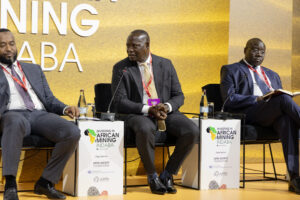The Chief Executive Officer of TC’s Energy, Anthony Opoku, says that the company’s power generation from the sea project at Ada Foah, in the Dangme East District of the Greater Accra Region, is on course, assuring that by the end of 2022, that power source will be fed into the national grid at Sogakope in the Volta Region.
The project, which the Ghana-based company is executing alongside Seabased, a Norway/Sweden consortium, will see TC’s Energy and the foreign partners generate an initial 100MW from the Atlantic Ocean, which will be ramped up to 1000 megawatts within 20 years.
In an interview with the media, he explained that the greatest hindrance the project has faced has been securing the financing to execute it.
He, however, revealed that this has now been overcome, paving way for actual construction of the undersea facilities, including the turbines, to begin later this year.
Studies, Mr Opoku revealed, have shown that the sea waves at Ada have the right height and strength to turn undersea turbines and generate the needed power, using the same technology employed in generating power from inland rivers.
He explained that the pilot project at Ada has proved immensely successful. The company, too, is using the findings to correct some technical challenges which will ensure that the project comes on stream successfully.
“Energy experts elsewhere we have discussed with have accepted that the technology is good and the project viable; they are encouraging us, because they know what is involved and the level of its viability,” he added.
Financing
In addition, Mr Opoku explained that the unexpected delays have also enabled his company and its technical partners to fine-tune and redesign the machines to be more efficient, while collaborating with a multinational company which is currently assessing the technical profitability of the project.
He further said that his outfit is also having further talks with other willing financiers and potential co-investors.
“TC’s Energy has signed various memorandums of understanding with many foreign companies, while a local bank and insurance company are on board taking care of the banking and insurance needs of the project,” he revealed.
The biggest challenge the project faces, he explained, is that many do not understand the technology being deployed, hence their reluctance to fully commit themselves to it.
According to Mr Opoku, $200million is available, for now, towards the commencement of the project; the technical aspect has been fully sorted out; while 95 per cent of financing has also been secured with both local and foreign banks geared up and ready to move.
“The initial investment is high,” he admitted. He, however, explained that the cost to consumers will be reduced as the 2022 completion date for Phase One of the project, adding that the initial US$0.10 per kilowatt hour cost could be reviewed downwards, most especially, when the company increases its power generation capacity.








